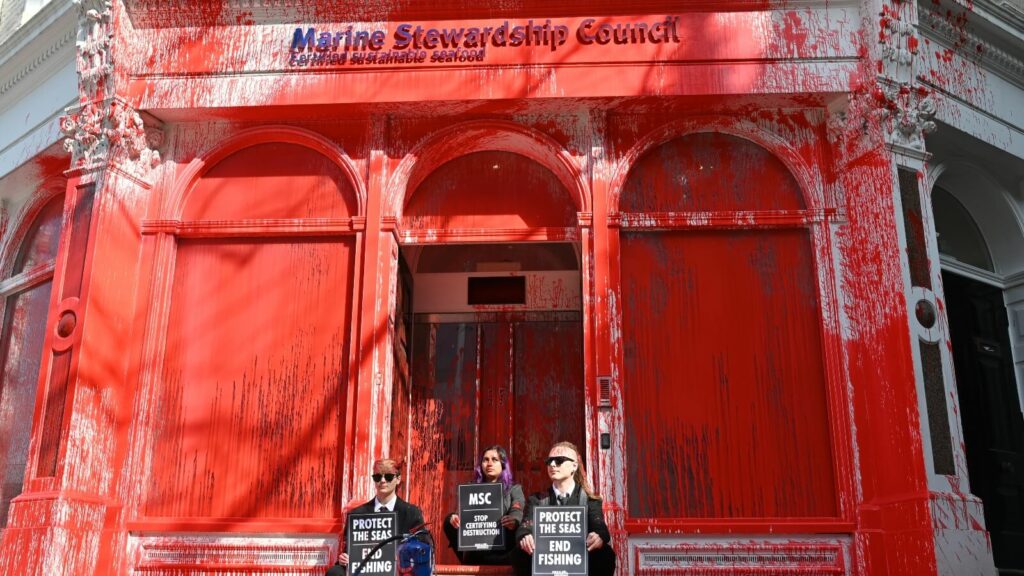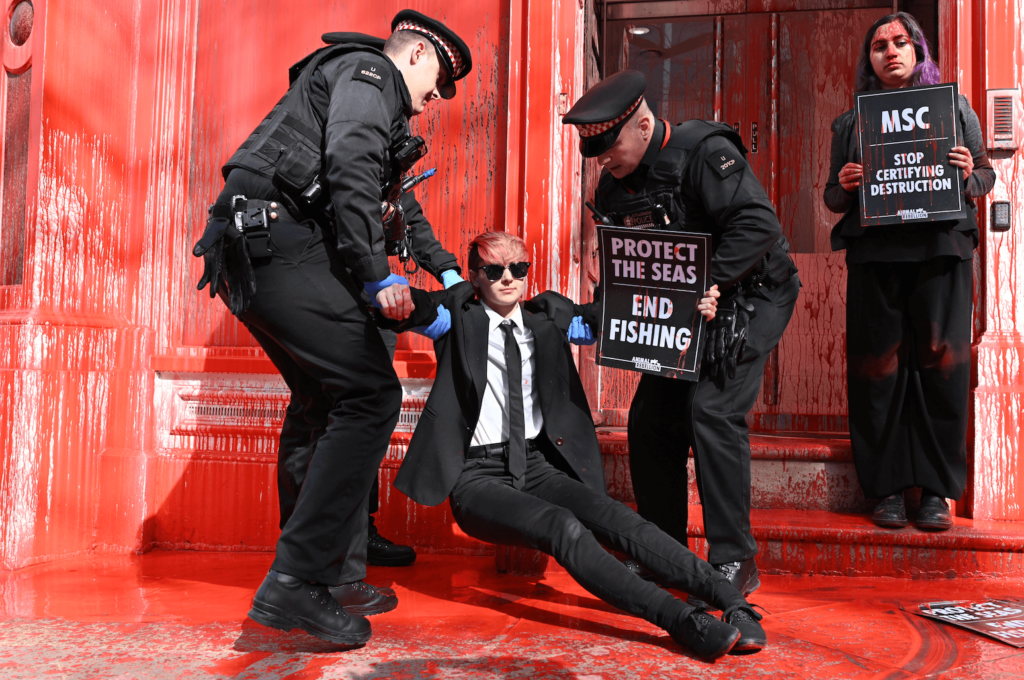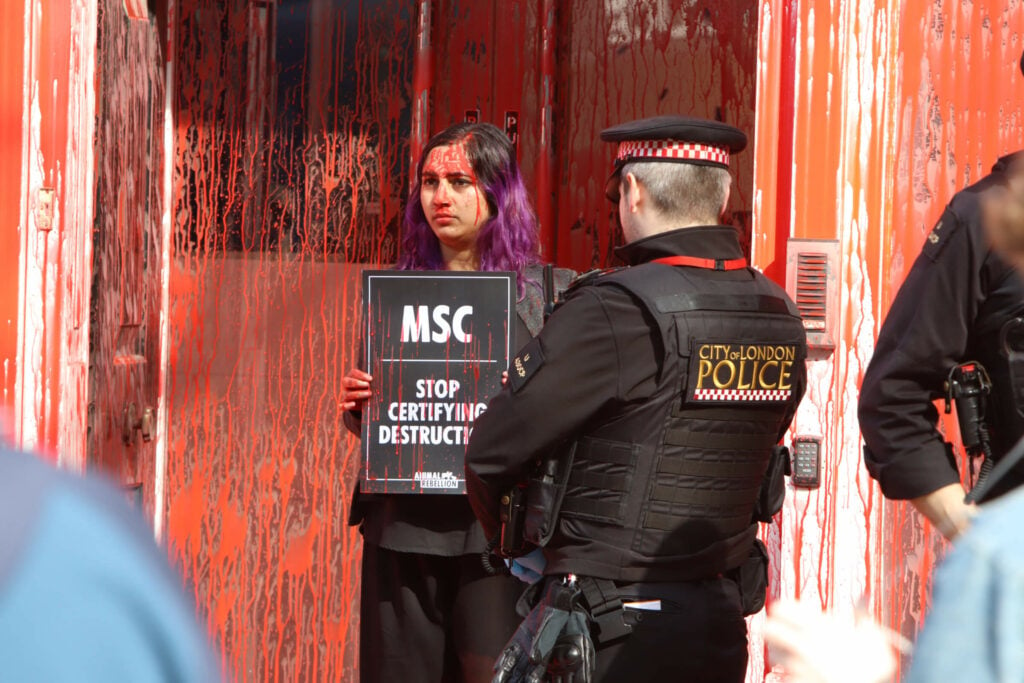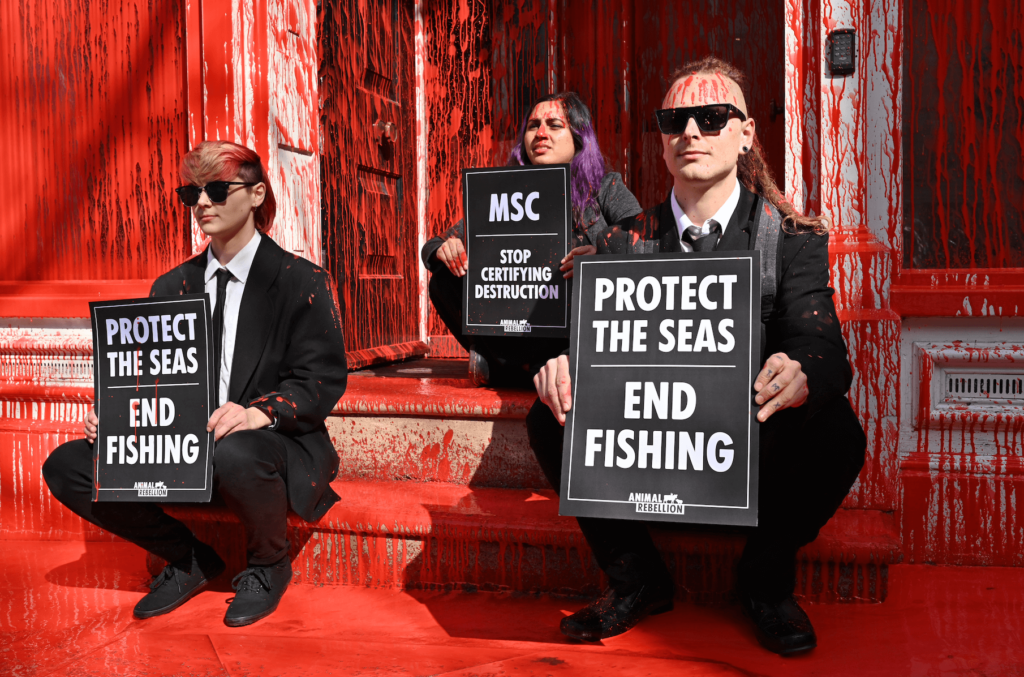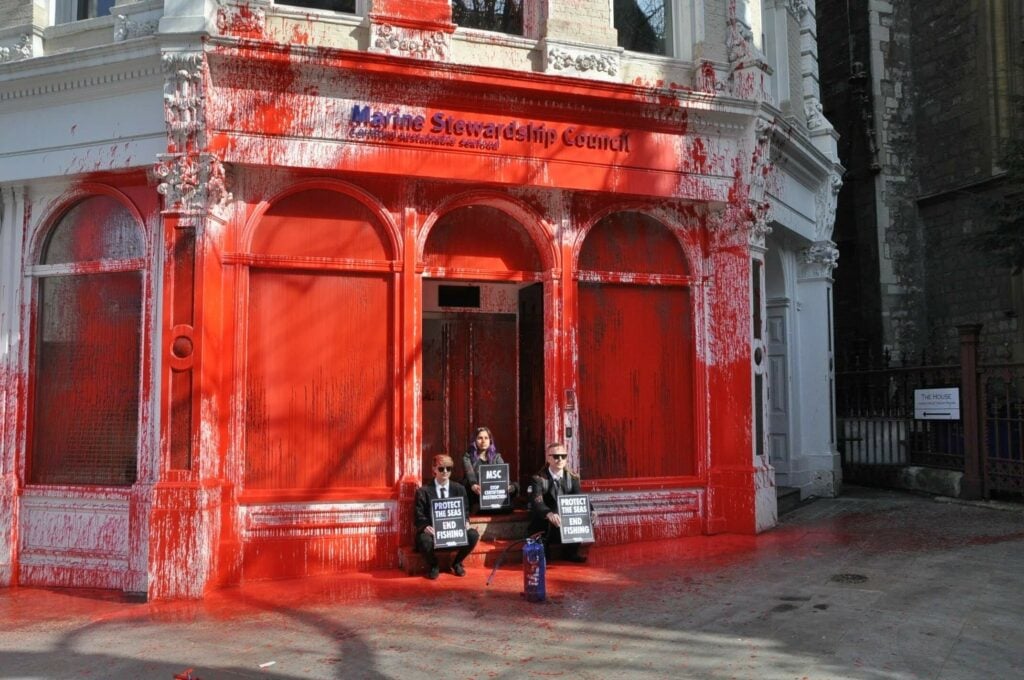Earlier today, activists slathered the headquarters of the Marine Stewardship Council (MSC) in London with blood-red paint. Animal and climate justice movement Animal Rebellion is behind the protest, which calls on the MSC to come good on its sustainability pledges and stop supporting commercial fishing.
Four protesters used fire extinguishers to spray the building red, and dumped red paint inside the office. As part of the campaign, Animal Rebellion is urging the MSC to stop offering environmental certification to the fishing industry.
The MSC maintains that products donning its blue eco-label are sourced from a “sustainable fishery” that meets specific standards. The MSC zeroes in on three “core principles,” its website says, including Sustainable Fish Stocks, Minimizing Environmental Impact, and Effective Fisheries Management.
Products and companies certified are subject to a yearly audit, and must be re-certified every five years.
But Animal Rebellion argues that there is no sustainable way to commercially fish, and that any such program is simply “certifying destruction.”
Animal Rebellion spokesperson and protester Orla Coghlan elaborated on the issue in a statement.
“Evidence has shown that our oceans could be empty as soon as 2048 because of fishing. The MSC has a responsibility in their claims to be sustainable. They have a duty to revive the ocean when species are going extinct,” Coghlan said.
“The solution to fishless seas and ocean acidification is obvious: the government and the Marine Stewardship Council need to fund a just transition from fishing to sustainable plant-based agriculture, such as seaweed and legumes.
“The MSC are responsible for ensuring ‘sustainable’ fishing, however scientific evidence has shown that it is not possible to sustainably fish in our seas.”
MSC controversy
The public’s interest in sustainable consumption – especially relating to seafood and marine life – is on the rise. The hit documentary Seaspiracy – which quickly climbed into Netflix’s top ten most-watched films when it was released in 2021 – has been hailed as a driving force behind the change.
Around the time the movie was released, Google searches for “sustainable fishing” shot up worldwide.
And the MSC did not escape criticism. Seaspiracy took a thinly veiled swipe at the non-profit, highlighting that the MSC is funded by the licensing fees paid by the fisheries and supermarkets which receive its certification.
In July 2021, The Guardian revealed the MSC’s labeled products were worth $12 billion (£9.5 billion) the year prior.
WWF, which co-founded the MSC in 1997, admitted in a 2016 report of its own that the certification scheme involves “troubling systemic flaws.” It has also called on the MSC to become “more rigorous” in its certification.
Further, last year, WWF’s director of the WWF Mediterranean marine initiative, Giuseppe Di Carlo, told The Guardian that “I would not trust all of the fisheries [certified by MSC] to be sustainable.”
“WWF expects MSC to make reforms in the standard, and also in the assurance process, the implementation of standards.”
Animal Rebellion spokesperson Harley McDonald-Eckersall says a fishless food industry is key in boosting sustainable consumption.
“Despite increasing warnings of imminent climate catastrophe, these certifiers continue to promote these destructive industries,” they said.
“We’re here today to demand that they stop the hypocrisy and stop condoning an industry that is destroying the planet and killing the animals they claim to protect. A fully just, sustainable plant-based food system is the only way forward.”
